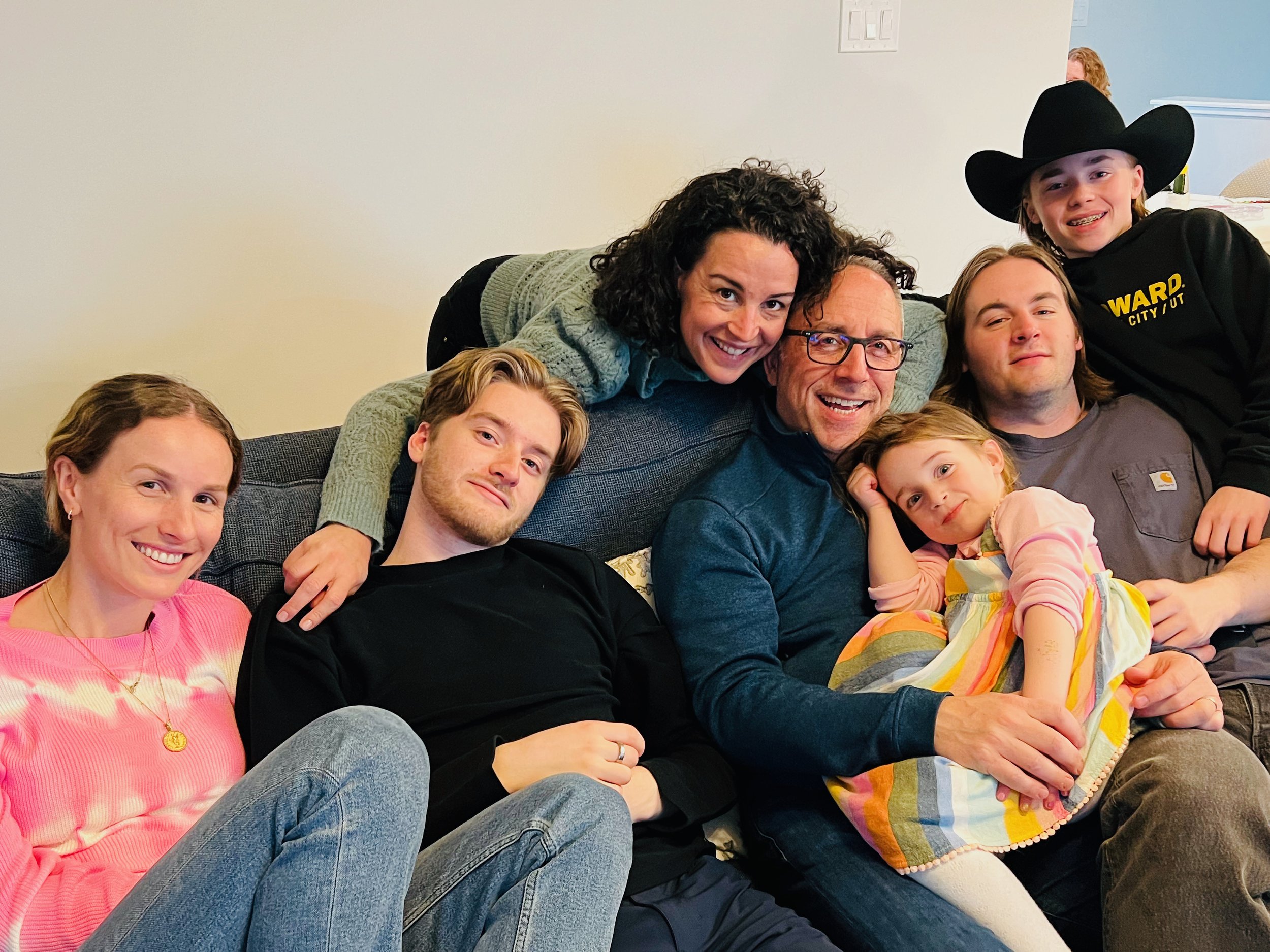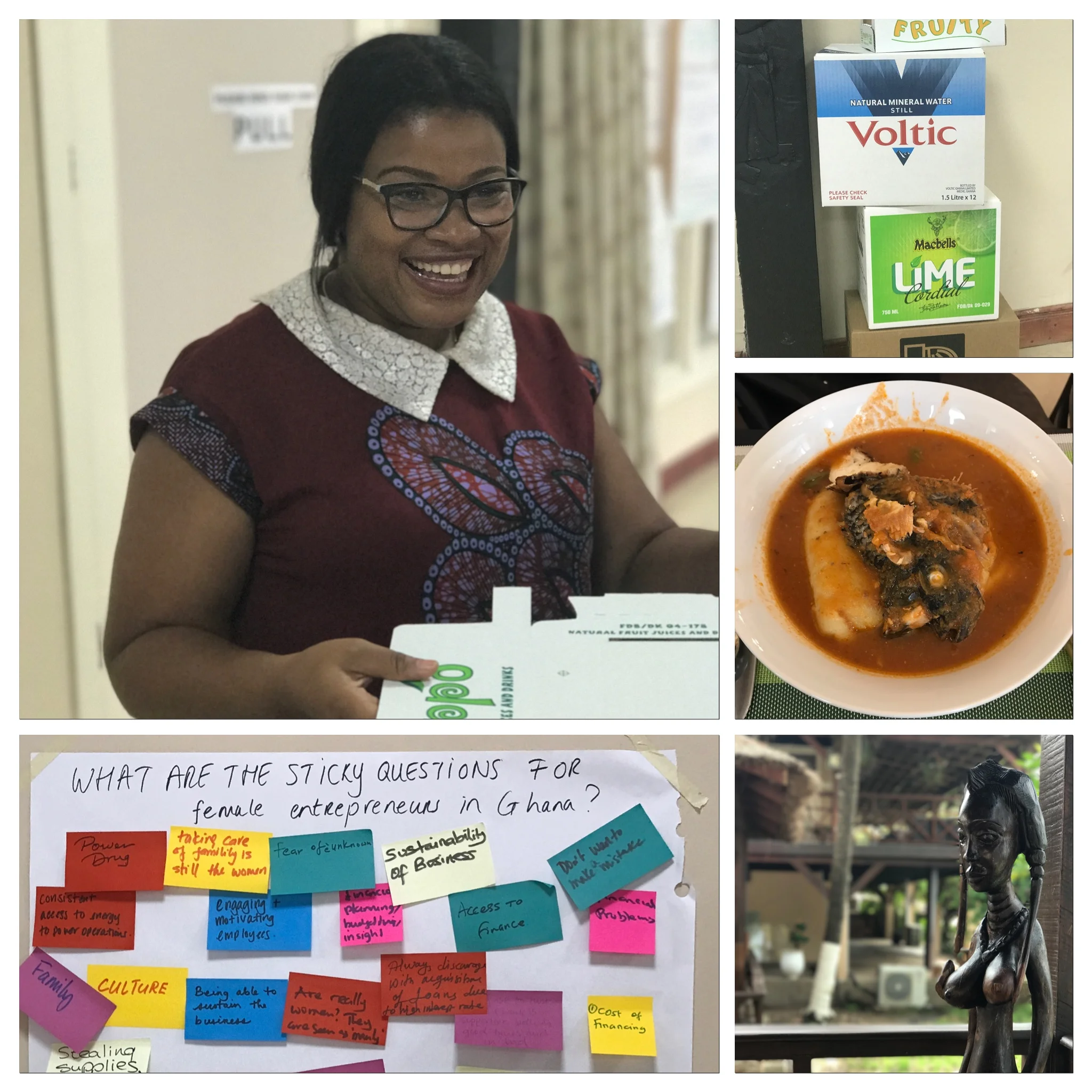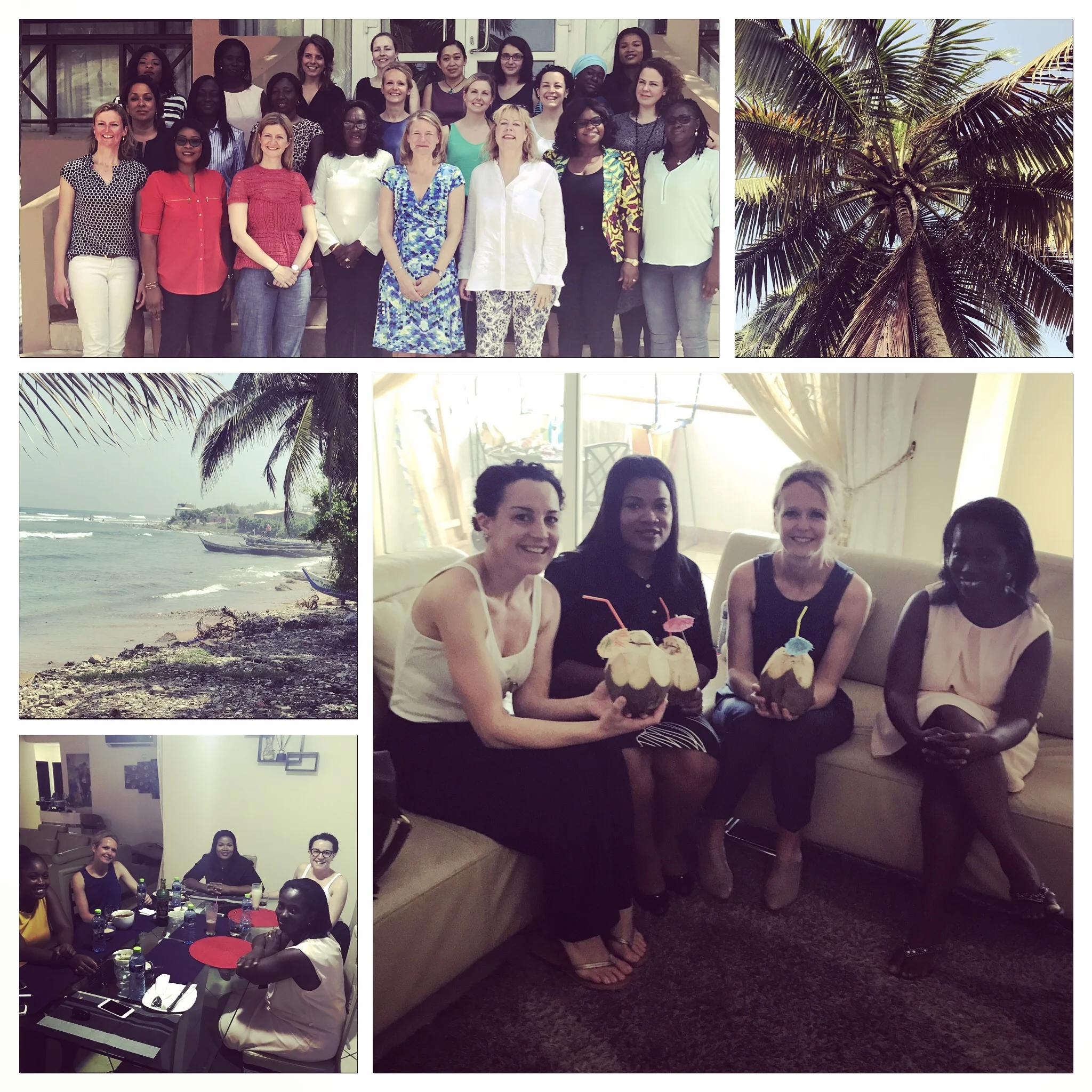Accra, Day 3: Founders, Family & Legacy
Wednesday May 9, 2017.
“In Ghana, when the founder dies, the business dies.”
I’ve heard this every day I’ve been here. Monday, as Emelia drove us to her house for dinner and shared the background of her father’s journey from the village to Group Chairman, she said it is too often the case. Yesterday, as we were discussing the challenges facing entrepreneurs, it was one. And today, as we had dinner with “Aunty Grace,” a legend in Ghana, an original female founder, who built a personal care business out of her pocket starting at age 24, she lamented this. Then she turned to her daughter, who sat beside her, and said that she is why the business will not die.
Shortly after this comment, Emelia — reserved, composed, articulate, CEO who is always in control — stood and thanked them both for being there, starting to cry. She has shown passion, determination, curiosity and grit this week; she has not shown weakness or emotion in this way the whole time. It was incredibly powerful to see her relate to what we learned is such a rare occurrence: a true family business, that is succeeding, and that is building a legacy by serving a purpose bigger than themselves.
Speaking of “bigger than yourself,” have you ever had a moment — it happened for me when Michael and I hiked Mt Washburn in Yellowstone and were stunned and humbled by the beauty and magnitude of what was all around us — where you felt that? Today, we toured Emelia’s “baby,” her business, Royal Crown Packaging (RCP), and I felt swallowed up by the whole experience. As you all know, words tend to come easy and often for me ;), but I was again stunned, into silence and into observation. As we arrived, Emelia quietly said “when we are in there, I want you to know, I want my team to do the talking. So just in case you are wondering if I’m not saying much, that’s why. I want to hear them.”
This is going to be real.
As we make our way into the facility, phones out snapping pics, I watch Emelia as she greets the staff and banters with them. One asks if he can join us, laughing. There is a connection, an intimacy, and a drive that is immediately apparent.
We walk in and it was all about safety: we were given vests and ear protection, and are taken through the “ground rules.” We were all struck by the reams and reams of paper, the humming machines, the heat, the energy, the activity all around us. Enormous rolls of paper lined the floor, stacks of “board sheets” (corrugated cardboard to be assembled into boxes) were neatly lined up, and huge machines churned paper, glued it together, and “fluted” the paper to create 3-ply sheets. Emelia wants to upgrade the machines to be able to produce 5-ply sheets, which will enable RCP to meet demand from agri businesses which need stronger, water resistant boxes for their products. The glue is made in the factory, with simple ingredients. The quality control is impeccable. The team is engaged, actively describing every step of the process and the incredibly high standards they operate the business to, with aquiet, serious pride. We navigate our way through the factory, stopping to understand the machines… it’s incredibly hot, we are all sweating… and we make our way to the “ink kitchen.” This is where the design of all the printing on the boxes happens, and then we see the machines that combine the sheets and convert them into boxes for delivery to customers. There are parts of the process that are currently manual; Emelia and her team want to automate these so that they can increase their capacity, fully utilize the sheets they are able to produce, and meet customer demand to grow their market share. In a year since operations began, they have disrupted the market and taken 40% share. In. A. Year.
As we walk around, there are quotes on various walls:
“If you don’t seeyourself as a winner, then you cannot perform as a winner”
“WINNERS say ‘it may be difficult but it is possible.’ See the gain. See possibilities. Make it happen.”
And the company “cheer”:
One person says: Royals!
Response: Winners today!
Cheer: Royals!
Response: Winners Tomorrow!
Cheer: Royals!
Response: Winners Forever!
(We later practice this with the leadership team: it’s in their DNA! :))
We meet with Emelia’s core team: Sally, who runs HR, joined from a bank; Philip, who joined a week ago after several leading positions in microfinance organizations, is her new CFO; and her Head of Sales whose name I didn’t get, joined from a direct packaging competitor where she was for 12 years. They all bring invaluable insights and expertise and I am so struck by how they speak about the business as if they are true “owners.” Sally talks about how they pay their people well above minimum wage, provide a full benefits package, and generally treat their employees “like family.” They all share how they have begun to naturally include what they call “CSR” in their business. Employees make what they refer to as a “free will contribution” to a fund that helps needy families and children get education and health care. Sally shares that last month, she forgot to collect the contribution from RCP’s 72 full time employees, and a couple of them came to her to proactively give their contribution. I thought my heart would jump out of my chest. I could feel it in my throat.
Of course, this also means that employees are more loyal, they want to join RCP and once they are hired, they do not leave. They are bound to the organization and they are more productive, innovative, and committed; the company is who they are. And this makes them incredibly proud. (Isn’t this what every company wants??)
Today, I saw Emelia’s unbridled passion come to life, as she shared with us her life’s work, her “baby,” and her team. Frommy perspective, she did this for mostly by how gracefully she empowered them, not by dominating the conversation or the tour, but instead being on the visit with us, their guests, and asking her people only prompting questions so they could explain and make it all real for us.
Family is a part of every single conversation here. And it seems so is the entrepreneurial spirit that drives so many people. Yet family businesses do not often survive, partly because of how families develop and how the culture shapes them. What Emelia and Grace are doing, each in their own way — as a mother and as a daughter, as a Founder and a “Second Generation” Founder/CEO— are remarkable when one considers the constraints and the challenges faced and the depth of perspective, the determination, and the sheer work that is required. And yet, and yet, they are both humble, they are both focused on their ‘bigger purpose,’ to change their families, to protect their legacies, to serve those in need, and their country.
When asked “what do you do when you do not know what to do?” tonight, Grace replied:
“Pause. Go back to your source. Why are you doing what you are doing? Ghanians would say ‘Connect with your source’…and you will find your answers.”
Amazed,
Maggie




